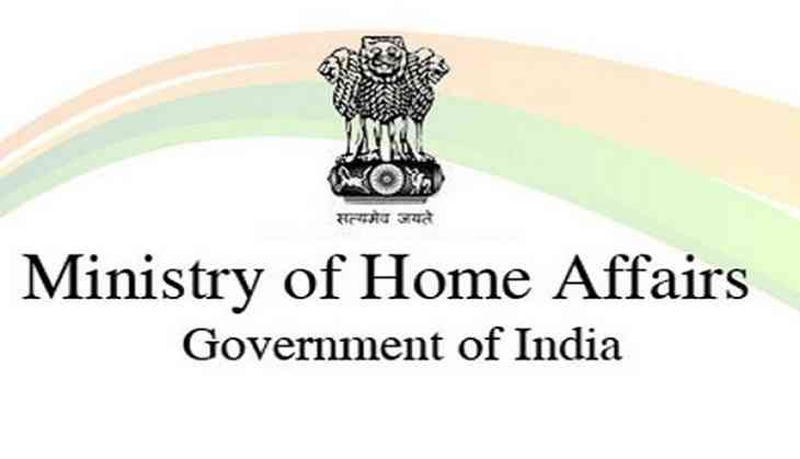Detentions to be reviewed case to case basis
Excelsior Correspondent
JAMMU, Mar 3: The Union Ministry of Home Affairs is in discussions with the Government of Jammu and Kashmir and Administration of the Union Territory of Ladakh to fix residential norms for the people of two Union Territories, which was part of erstwhile State of J&K till August 5 when they were bifurcated by the Central Government through Jammu and Kashmir Reorganization Act.
Various political parties, social organizations and individuals in both the Union Territories have repeatedly been raising the demand for domicile law to fix residential norms for purchase of land as well as recruitment in the Government jobs. The Central Government has repeatedly assured the two Union Territories that it will shortly come out with land norms as well as protection of recruitment for the locals.
The Union Ministry of Home Affairs in response to a joint question by Velusamy P and Shanmuga Sundaram K in the Lok Sabha today, said in order to fix the residential norms for the people of Jammu and Kashmir and Ladakh regions, synergized adaptation of various relevant laws of the erstwhile State of Jammu and Kashmir are being discussed with the Government of Jammu and Kashmir and the Administration of Union Territory of Ladakh.
“The norms will be announced under Section 96 of the Jammu and Kashmir Reorganization Act 2019,” the MHA said.
Discussions, according to sources, were in final stages and an announcement by the Union Home Ministry could be made soon for both the Union Territories of Ladakh. However, the Government could exempt the industry, their staff, Central Government officers/officials, their families, security personnel serving in Jammu and Kashmir and some other categories from the purview of residential norms.
“Things will be clear when the residential norms are finally released by the Central Government,” sources said.
Responding to another question by National Conference Member of Parliament from Baramulla Parliamentary constituency in Lok Sabha, on whether detention of people other than political should be reviewed and they released on priority basis, the Home Ministry said: “such cases of detention are required to be reviewed on case to case basis as per statutory obligations by the appropriate authorities from time to time considering the prevailing circumstances and relevant factors”.
The Home Ministry said appropriate Governments issue orders for detention of a person under relevant provisions of law, inter alia, keeping in view factors related to safety, security and maintenance of public order.
The MHA added that Jammu and Kashmir reported over 1,500 terror incidents during last three years.
The data presented by the Home Ministry in response to another question also showed that 1,550 terror incidents were reported in Jammu and Kashmir between 2017 and 2019 and 251 security personnel, 118 civilians and 627 terrorists were killed during the period.
The MHA said terrorism is largely sponsored from across the border as Pakistan’s snooping and espionage agency ISI has close links with terrorist outfits like Lashkar-e-Toiba, Jaish-e-Mohammad, Hizbul Mujahideen and it provides them safe havens, material support, finance and other logistics to carry out terrorist activities in India.
“No major terror attack took place in the hinterland of the country during the last three years, except a grenade attack in… Amritsar, wherein three persons were killed,” it added.
On a question about undertrial terrorists, the Ministry said the data is maintained by the State Governments since ‘Public Order’, ‘Police’ and ‘Prison’ are State subjects as per the Seventh Schedule of the Constitution of India.
At the Central Government level, it said, the cases relating to terrorist acts are investigated by the National Investigation Agency (NIA).
The National Investigation Agency Act, 2008, provides for constitution of special courts, registered by the NIA, where such cases are heard on day-to-day basis and get precedence over other cases.
“Accordingly, 49 courts all over India have been designated as Special NIA Courts for speedy disposal of cases relating to all accused arrested by NIA in terror cases,” the MHA said.
It said financial assistance is given to victims of terror attacks. The State Government initially gives financial relief to the civilian victim or next of kin of victim, which is Rs 5 lakh in case of death or permanent incapacitation, and then seeks reimbursement of the expenditure from the Centre.
Apart from it, the concerned State Governments also provide assistance to the victims as per their policy.
The MHA said a total reimbursement of Rs 4.30 crore has been issued in fiscal years 2016-17, 2017-18 and 2018-19.
“The ex-gratia/compensation is paid to the families of security personnel as per the extant guidelines of CAPFs/Army/ State Governments and under the ‘Security Related Expenditure (SRE) Scheme’ for the State Police/Security Personnel/civilian victims,” it said.


